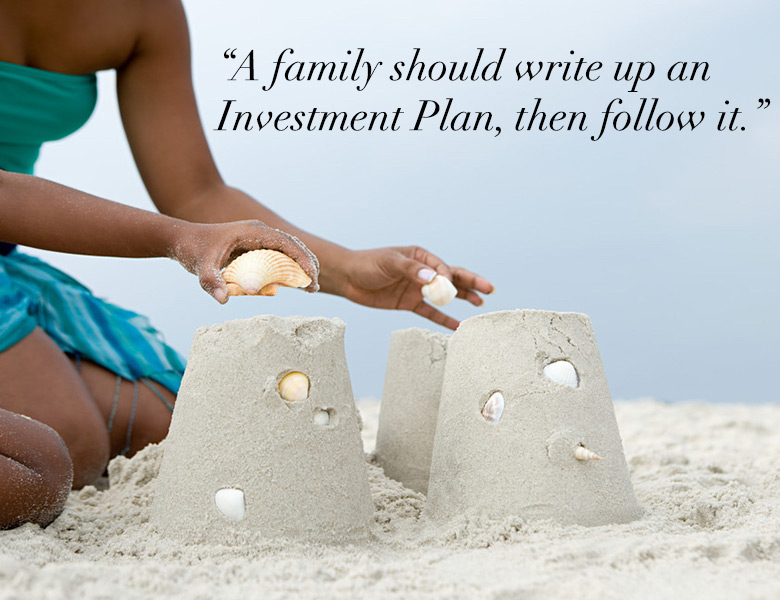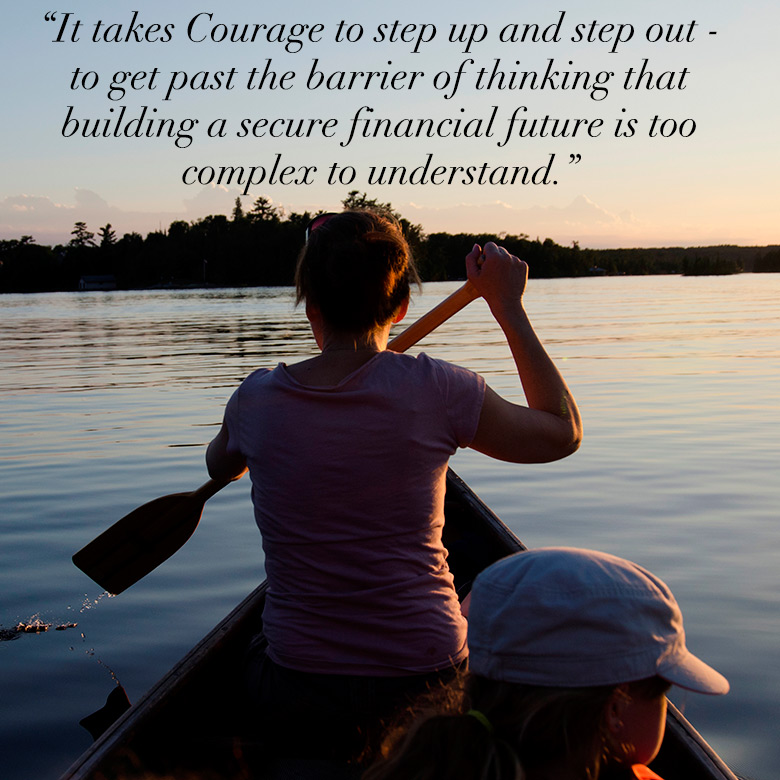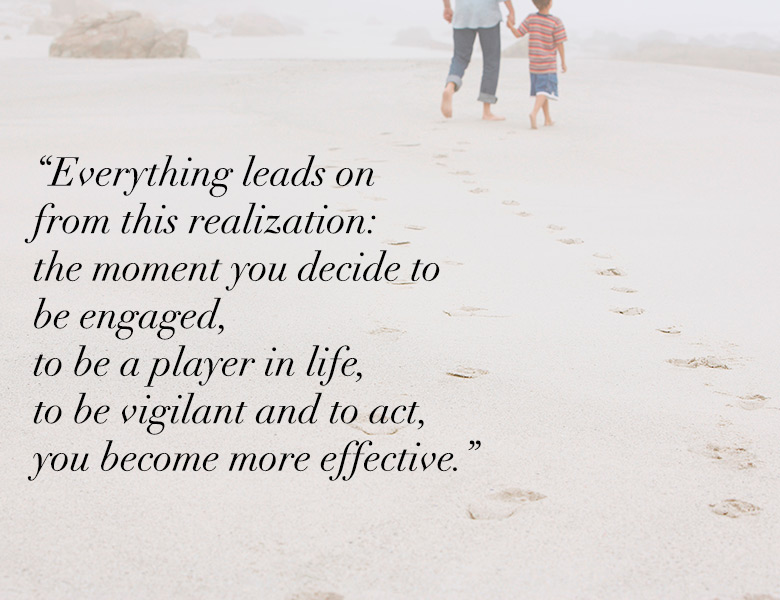A Conversation About Financial Well-Being and the Future of Your Family.

Last week, Dusty Staub, best selling author of The 7 Acts of Courage, spoke with Gary Stone to talk about what it means to create financial well-being as a family.
Gary is a Researcher, Investor, Best Selling Author of Blueprint to Wealth: Financial Freedom in 15 Minutes a Week, and Founder of fixmynestegg.com.
This is their conversation…
Dusty: Thank you so much for talking with me today Gary. Before we get started, would you tell our readers a bit about you and what you do for a living?
Gary: I am a husband and father with three children, as well as a long-distance runner and a low single figure golfer. What I do for a living is to help individuals and family create wealth.
I am a businessman and run a financial services company. For more than 22 years, I have helped people create financial freedom.
Dusty: How is What You Do Different from Other Financial Advisors?
Gary: We are called a ‘financial advising’ company but we are very different to what most would think of when they hear the term “financial advisor” or “financial planner”. The chief difference is that we help people be directly engaged in the stock market with a process and set of tools that help them experience success.
We help people develop an effective plan using a structured process and then teach them how to manage it in a rigorous manner that takes only fifteen minutes of attention each week, once the plan is completed.
Most financial advisors look at your entire financial situation and then on the management needs of your debts, credit cards, insurance policies, qualified retirement plans, asset allocation, etc. The asset classes that they would have you invest in would be stocks, mutual funds, target date funds, bonds, real estate, cash or other such investments.
Instead of all of that, we focus specifically on the stock market. When people realize their investments are not up to snuff then we show them how to grow their wealth by being the key decision makers on what to buy, when to be out or in the market and how much to invest in exchange traded funds, stocks and/or cash. It is a self-directed process and the person as an investor is making the decision.
Dusty: What is your experience working with families? Where does the conflict over finances come and where do they most need courage?
Gary: In my experience over the years, many families live beyond their means; there is more going out than is coming in each month and this leaves no room to make the investments for future well-being, for building wealth.
This is a place of great conflict within the families that I have worked with. It is a dimension of family life that generates misunderstanding, great anxiety, and needless pain. Part of the process of minimizing this conflict is learning to have the Courage to Face the Current Reality, to notice key imbalances in the family’s financial life, and then address these through a thoughtful, organized, and agreed-upon systematic process.
This means having the courage to engage in the difficult conversations about how to manage money in a way that takes care of today AND also addresses generating well-being and freedom for the future. This is essential.

Then, the next step is to start building wealth by acting on the insights gained and following a plan of action. The sooner you start the better off you will be due to the power of compound interest. A little bit of interest, compounded over a longer span of time, can generate a sizeable nest egg.
If you can start filling your well before you become thirsty, recognizing you are going to need financial flow in the future in order to be comfortable, then you are playing wisely in the financial well-being game.
You simply need to find a little bit every month that you systematically invest over time.It may truly only be a little when you start but with the miracle of “compounding” and the passage of time, your savings multiply and wealth is created. This takes time – you want to start as early as possible. It is best to have at least twenty-years to let it work but thirty or more is even better. The more you can put away and the sooner you start, then the greater the wealth down the road.
I suggest to families that they work on learning, building and then teaching specific money habits to the children.
For example, the habit of putting a small amount of money into investing first thing when you get paid, not at the end. You would say, “This is how much I am going to save,” and then you invest that first, and only spend what is left.
That would be the greatest advice I could give: start now, give it lead-time by informing yourself and laying out a methodology and a plan. A family should write up an Investment Plan, then follow it.

You need to stay up to date and informed and you execute the Plan in only fifteen (15) minutes a week. That is enough time once you have the plan and you are working with it.
Start by discussing with the family the current reality of money management as well as the desired goals and objectives.
Next, outline a plan for taking care of today while also working to secure the future. Follow through on HOW you will invest the money you invest each month in order to make your financial future more secure. Putting it all in writing is important as it makes it more real and more likely you will follow the plan.
Finally, review the plan with family members once a quarter to discuss what you are doing and why you doing it. This helps tremendously in executing what you have planned, according to clear goals that connect to family benefits.
The key here is to get discussion and open dialogue around money management and wealth creation.
Few families seem to do this and yet it is one of the most essential things to talk about and to understand because money plays such a big role in our daily lives and can be the cause of much emotional pain if not managed successfully.
I firmly believe that families need to have a family or life plan and the investment plan is part of that larger plan for the greater good, well-being and benefit of the family.
For example:
- What is the mission for our family life?
- What do we stand for?
- How do we want to show up with each other and in the world?
- Why are we on this earth?
- What do we wish to achieve?
- How to best plan for our future?
- Why is actively managing our finances important to us?
- Why is working to grow our wealth important?

My book, Blueprint to Wealth: Financial Success in 15 Minutes a Week, outlines the core orientation and methodology we use to help individuals and families to be more effective and successful. The amazing thing is that you can do this in only 15 minutes a week once you set it up, mostly in observing and staying alert versus having to “do” something every week.
We have analyzed the full spectrum of ways of investing and trading in the stock market and found a focused and effective way to be successful for the everyday person who knows nothing about the stock market.
The financial advisor fraternity wants you to believe that it is too complex, too difficult, too much of a “black box” that is unknowable.
That is not true. After all, I doubt that you really want to outsource your financial well-being to someone else and to be at the mercy of his or her objectives and agenda.
It is important that you take control of your financial destiny versus handing it over to someone else. We call it “active” investing. The truth is that when you buy something at some point you will have to sell it. Our process helps you to make those decisions and to stay up to date on what to do, when to sell and when not to sell.
We have developed a methodology that is very process-oriented. We have done intensive research, thousands of hours of study to get beyond the black box mystery of the market to a “clear, glass box methodology” where you can see all of the moving parts and know what you want to do, when to do it and why to do it as well as how it works.
Dusty: Where Else Does Courage Come In?
Gary: The stock market is one of the most effective mediums for self-growth – of growing and creating both yourself and your wealth, thereby producing more freedom and ease in living.
However, the market takes no prisoners; it treats everyone the same. There is no place to hide, no class system in the market. The way success can be measured is around consistency in approach and also in being authentic about “who” you are. Big egos lead to big disasters. It takes humility and knowing yourself and thus it tests your decision-making ability.
You have to have the Courage to See Current Reality, to face who you are–to see what is so. You also need to develop the courage to be confronted by issues, challenges. To be willing to understand what money can and does mean to you and to those around you–knowing how to handle being wrong and also how to handle large sums of money.
Courage is essential as you are highly accountable for your outcomes with clear measurements. There is no place to you hide.
Dusty: Where do you feel courage is most needed today?
Gary: The degree of success of your investment and money management process determines your degree of independence and comfort in life.
This comes purely from the quality of your decision making, the degree of engagement you had in creating your financial well-being and your methodology, and your consistency and objectivity to follow your Plan through to make a difference.
It takes courage to step up and step out – to get past the barrier of thinking that you don’t know enough and that it is too complex to understand. There are three steps to accomplish this.

The first is to look at the S&P500 Index versus how your advisor and funds are doing. Be vigilant in terms of the fees you pay and the hundreds of thousands paid out over the years that could have gone into building wealth for you and your family over time.
The second step is to enter the game and get involved, to be a player versus a spectator. It involves learning to make decisions and taking charge.
A third step is an on-going process of measuring how your engagement is going, looking at how to continuously improve in effectiveness. It is just like everything in life: with practice, observation and active engagement, you can develop and grow if you have the courage to measure your effectiveness. This has huge implications for your health, your family life and wealth.
Dusty: What is your best advice to others, your “Call to Action”?
Gary: I would say it is to make the decision to engage, to realize the importance of actively managing your income and your investments. You need to be the decision maker, the player and an active communicator with your family about the process, not simply a spectator.
After all, it is said that there are three kinds of people: “Those who make things happen; those who watch things happen, and those who wonder what happened.”
I encourage you to be the kind of person who makes things happen. You can do this by crafting goals, outlining a well-thought out plan such as we offer and then sticking to your commitment.
For your family as well as yourself, this increases responsibility, accountability and it also leads to more engagement across many dimensions of life. I believe that the pathway to enlightenment can be forged in the lessons that can be learned from the stock market because it makes you discover how well you can handle losing and winning alike!

This means having the courage to actively measure how well you are doing by the results you are getting. When you do this, making a commitment to learn and to be a true player, you then engage in a way where you can evolve, grow and be more in charge of all outcomes in your life.

